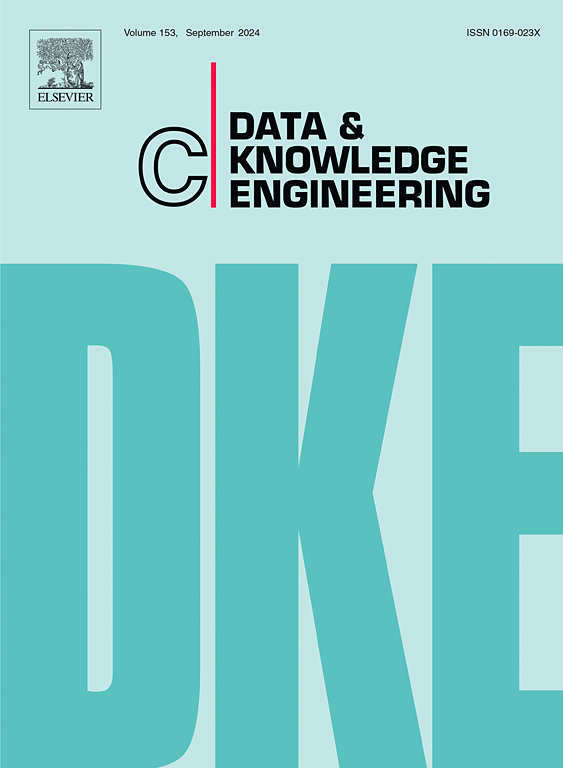Secure data storage in multi-cloud environments using lattice-based saber with Diffie-Hellman cryptography and authenticate based on PUF-ECC
IF 2.7
3区 计算机科学
Q3 COMPUTER SCIENCE, ARTIFICIAL INTELLIGENCE
引用次数: 0
Abstract
Human life has become highly dependent on data in recent decades almost every facet of daily activities, leading to its storage in multi-cloud environments. To ensure data integrity, confidentiality, and privacy, it is essential to protect data from unauthorized access. This paper proposes a novel approach for securing data in multi-cloud environments for user authentication and data storage using Lattice-Based Saber Cryptography combined with PUF-ECC and the Enhanced Goose Optimization Algorithm (EGOA). The initial user authentication is achieved through the PUF-ECC digital signature algorithm, which verifies both the user's and the device's identity. Once authenticated, user data is securely transmitted to the cloud server based on Lattice-Based Saber post-quantum cryptography combined with the Diffie-Hellman key exchange protocol. The encrypted data is then stored across multiple cloud storage through a cloud controller using RAM-based chunking. For efficient data retrieval, the Enhanced Goose Optimization Algorithm (EGOA) is employed to extract encrypted data from clouds. Finally, the data is decrypted using the Lattice-Based Saber decryption algorithm and securely retrieved by the authenticated user. This method enhances both the security and efficiency of cloud data management and retrieval. The experiment is carried out with the proposed methodologies and also compared with the existing technologies. The proposed approach achieves encryption times of 9.68 ms, key generation times of 4.84 ms, and block creation times of 1.59 ms, while maintaining a 93.7 % confidentiality rate, a 98 % packet delivery ratio, a transmission delay of 0.026 ms, throughput of 407.33 MB/s, jitter of 3.26 ms, and an RTT of 0.17 ms, demonstrating its effectiveness in secure data storage and retrieval in multi-cloud environments.
在多云环境中使用基于格子的军刀与Diffie-Hellman加密和基于PUF-ECC的身份验证来保护数据存储
近几十年来,人类生活几乎在日常活动的各个方面都高度依赖数据,导致数据存储在多云环境中。为了确保数据的完整性、机密性和隐私性,必须保护数据免遭未经授权的访问。本文提出了一种在多云环境中保护数据的新方法,用于用户身份验证和数据存储,该方法使用基于格子的军刀加密技术结合PUF-ECC和增强型鹅优化算法(EGOA)。初始用户认证通过PUF-ECC数字签名算法实现,该算法同时验证用户和设备的身份。通过身份验证后,用户数据将基于基于格子的Saber后量子加密技术和Diffie-Hellman密钥交换协议安全地传输到云服务器。然后,加密的数据通过使用基于ram的分块的云控制器存储在多个云存储中。为了提高数据检索的效率,采用增强型鹅优化算法(Enhanced Goose Optimization Algorithm, EGOA)从云中提取加密数据。最后,使用基于格子的Saber解密算法对数据进行解密,并由经过身份验证的用户安全地检索。该方法提高了云数据管理和检索的安全性和效率。利用所提出的方法进行了实验,并与现有技术进行了比较。该方法实现了9.68 ms的加密时间、4.84 ms的密钥生成时间和1.59 ms的块创建时间,同时保持了93.7%的保密性、98%的数据包投递率、0.026 ms的传输延迟、407.33 MB/s的吞吐量、3.26 ms的抖动和0.17 ms的RTT,证明了其在多云环境下安全数据存储和检索的有效性。
本文章由计算机程序翻译,如有差异,请以英文原文为准。
求助全文
约1分钟内获得全文
求助全文
来源期刊

Data & Knowledge Engineering
工程技术-计算机:人工智能
CiteScore
5.00
自引率
0.00%
发文量
66
审稿时长
6 months
期刊介绍:
Data & Knowledge Engineering (DKE) stimulates the exchange of ideas and interaction between these two related fields of interest. DKE reaches a world-wide audience of researchers, designers, managers and users. The major aim of the journal is to identify, investigate and analyze the underlying principles in the design and effective use of these systems.
 求助内容:
求助内容: 应助结果提醒方式:
应助结果提醒方式:


